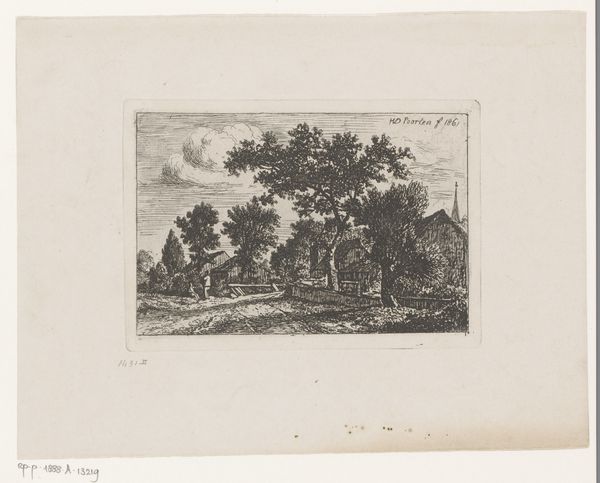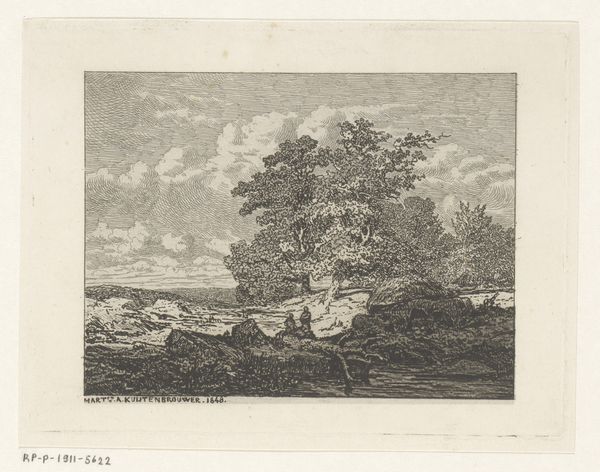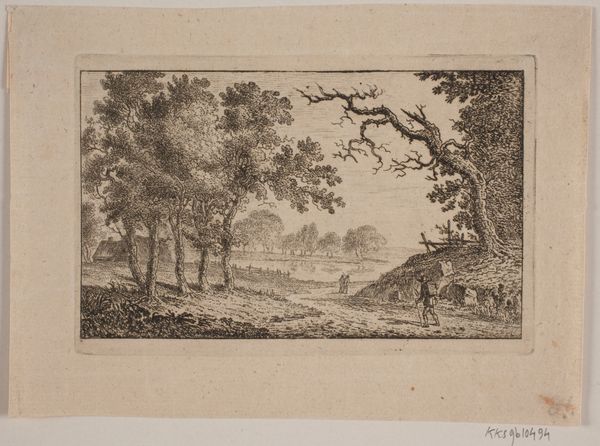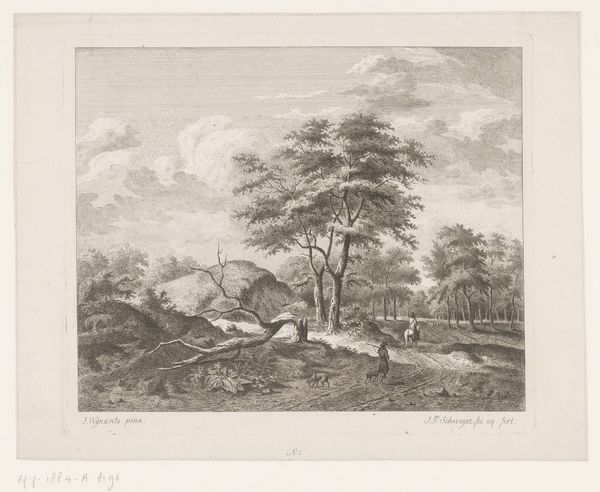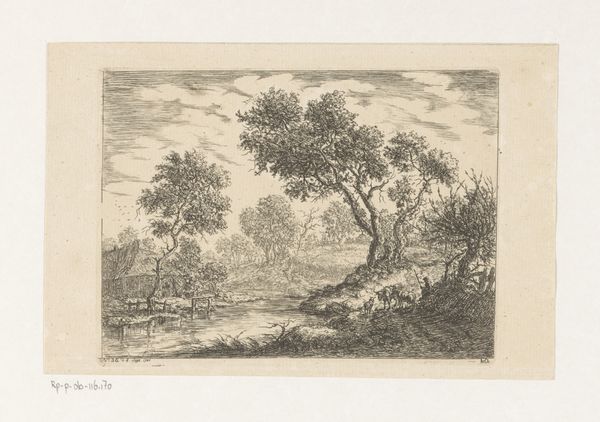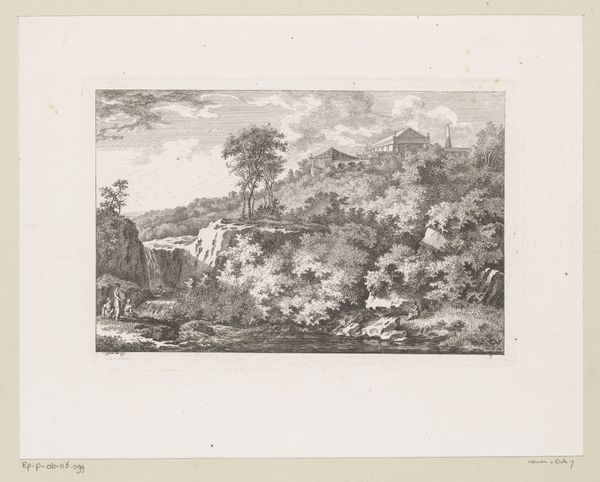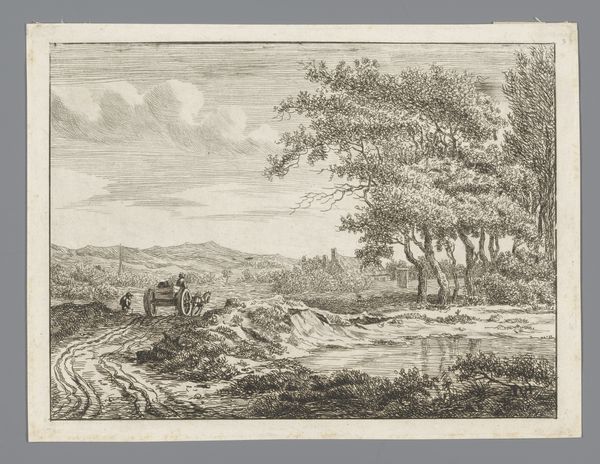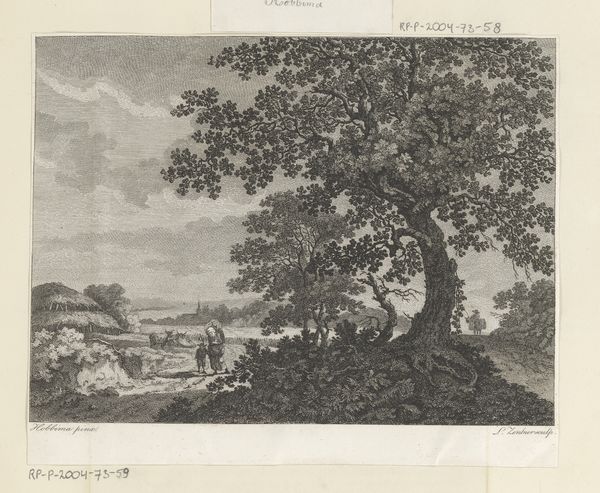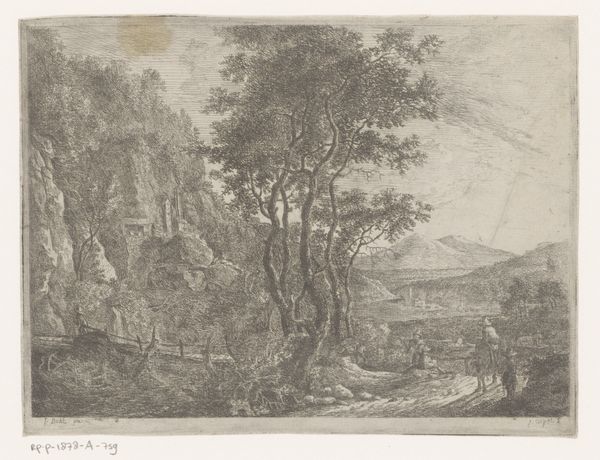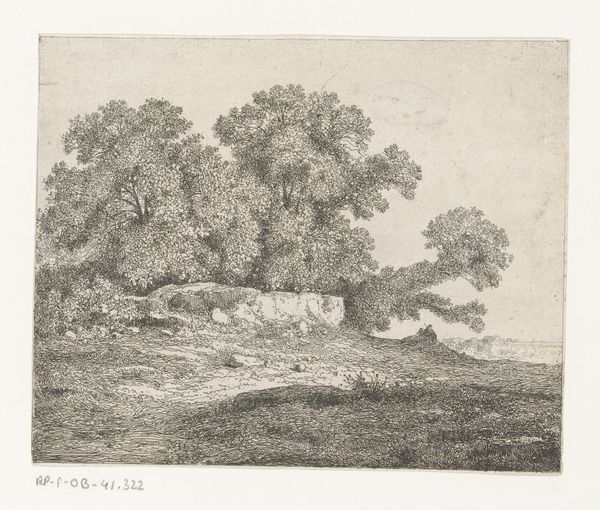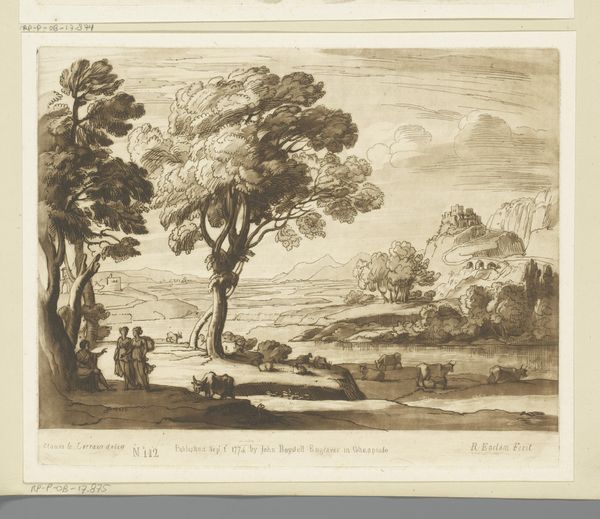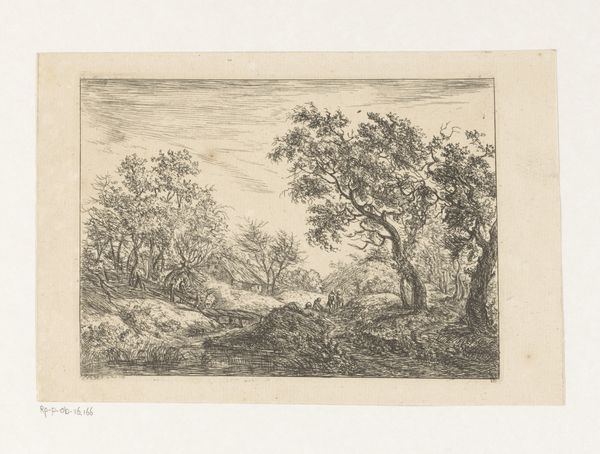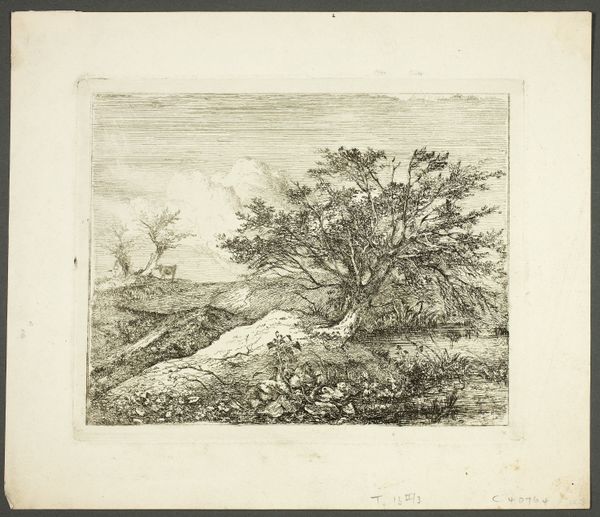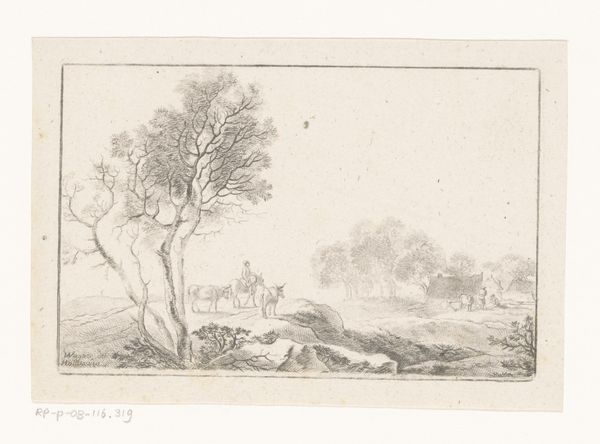
Landschap met twee gebouwen langs een pad after 1861
0:00
0:00
hendrikjozeffranciscusvanderpoorten
Rijksmuseum
drawing, print, etching, paper, engraving
#
drawing
# print
#
etching
#
landscape
#
paper
#
engraving
Dimensions: height 94 mm, width 142 mm
Copyright: Rijks Museum: Open Domain
Editor: So, this is "Landscape with Two Buildings along a Path" by Hendrik Jozef Franciscus van der Poorten, from after 1861. It’s an etching or engraving, a print on paper. It feels very serene, almost dreamlike in its soft focus. How do you interpret this work? Curator: This seemingly simple landscape invites us to consider the socio-political context of 19th-century agrarian life. Does this idealised depiction reflect a longing for a pre-industrial past, a romanticised view of rural existence, masking the realities of labor and class disparity? Editor: That's interesting, I hadn't considered it in terms of class. Curator: Look at the figures on the path. Who are they? Are they simply enjoying leisure, or do they represent the working class and how might the positioning relate to each other? How does Van der Poorten choose to represent them within the landscape? And how does the scale of nature dwarf the built environment? Does that suggest a commentary on the dominance of nature or the insignificance of human endeavors? Editor: I guess the size difference does make you think about human impact on the world. Curator: Precisely! We must ask ourselves, whose landscape is this? Who has access to it, and whose stories are silenced in this picturesque scene? Editor: So, it's not just a pretty picture; it's loaded with potential meaning about society at that time. Curator: Exactly. By analyzing these visual choices through the lens of power and representation, we can challenge traditional art historical narratives and create a more inclusive understanding of the past. Editor: Wow, I will never look at a landscape the same way again. Curator: Good! The aim is to use art to question, not just to admire.
Comments
No comments
Be the first to comment and join the conversation on the ultimate creative platform.
